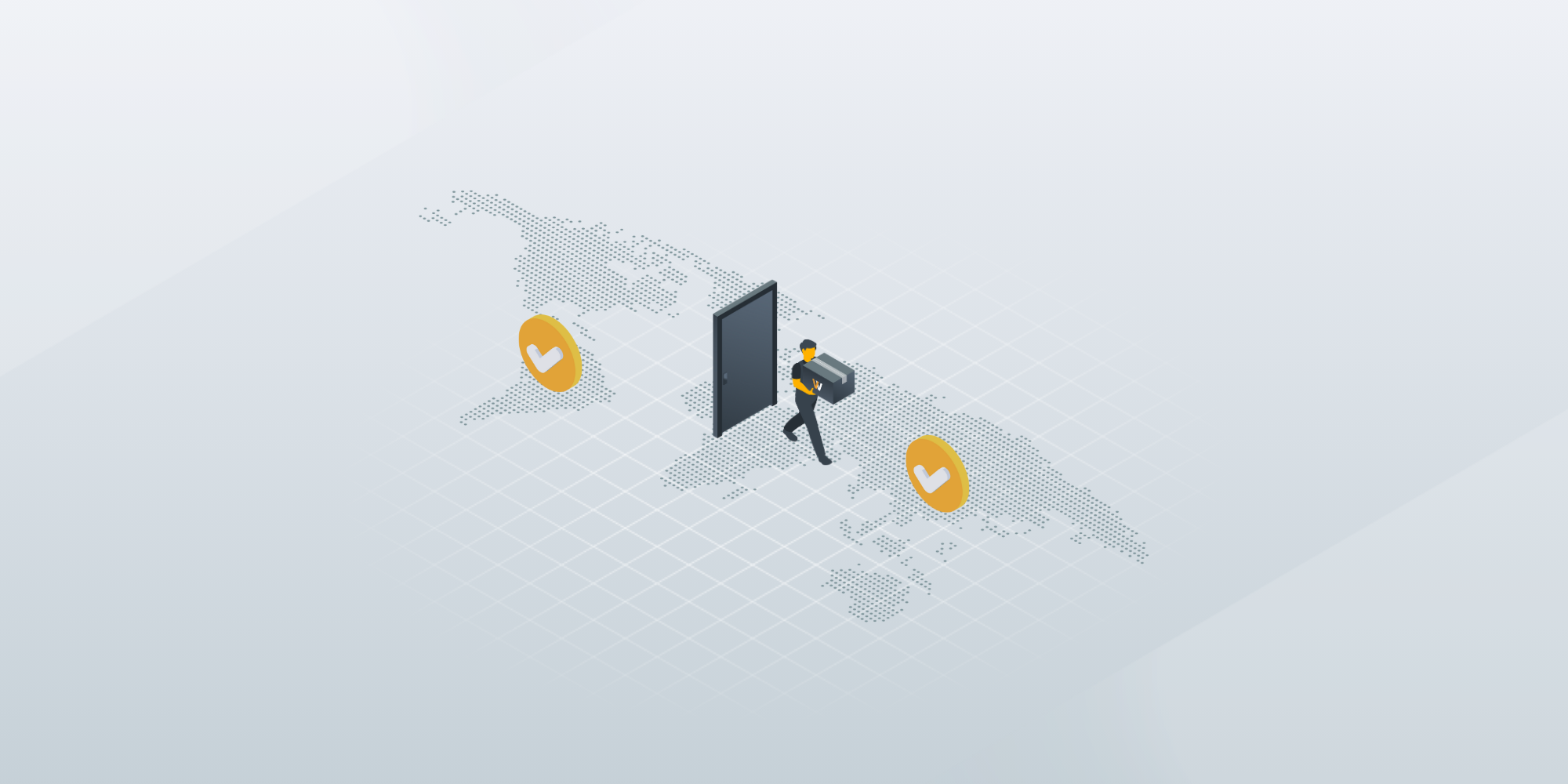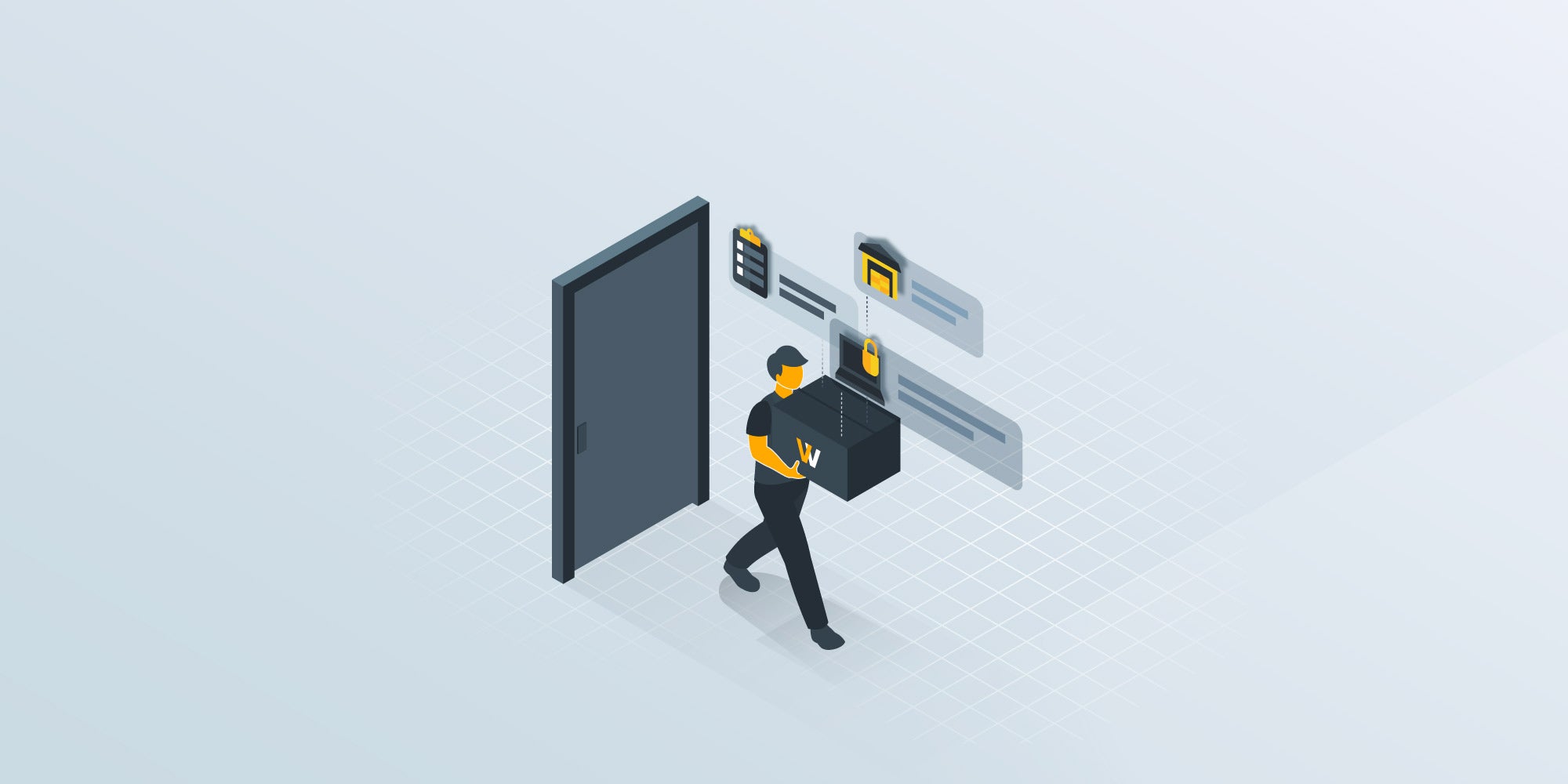Secure offboarding automation: How to prevent data breaches and financial loss
 Mara Quintanilla
Mara Quintanilla
Intentionally or not, departing employees can leave with sensitive data or private records that can result in data breaches and financial loss. That's why secure offboarding automation is so important to mitigate risks.
The threat is quite real. According to 2022 research by the Ponemon Institute, insider threat incidents have risen 44% in the past two years, and costs per incident have spiked to $15.38 million.
Moreover, almost one-third of employers have suffered a website hack, and over 25% of employers had their reputation damaged due to ineffective offboarding, Beyond Identity reports. The most alarming number is that 91% of employees still have access to company files even after offboarding.
Organizations need to implement a comprehensive process for departing workers to address these threats, including securing company information and devices. This is where secure offboarding automation comes in.
Steps for automating secure offboarding
As its name suggests, secure offboarding automation is the process of leveraging technology to guarantee that exiting employees terminate their relationship with the company seamlessly and compliantly. With GroWrk, we extend this capability to remote offboarding, ensuring a smooth transition for employees concluding their tenure with your organization.
The process must not leave loose ends that can potentially harm the organization or leave its data at risk.
To ensure a secure remote employee offboarding process is completed accurately and efficiently, you should follow these steps:
Identify all account and access rights
This includes everything from email accounts and company software licenses to access to company resources and databases. An identity and access management solution for your remote team can simplify this step.
Revoke access rights
After identifying all the accounts and access rights, the next step is to revoke them. Organizations should do this immediately to prevent employees from accessing company resources after they have left.
Change passwords
Once access rights have been revoked, the employee's or other system passwords should be changed to ensure they no longer have access to them.
Backup and transfer data
Any critical data the employee had access to should be backed up and transferred to someone in the company who needs it.
Notify relevant parties
When an employee leaves, notify any other stakeholders or third-party vendors with whom the departing employee worked.
Perform a final security check
After all the steps have been completed, it's vital to perform a last security check to ensure no unchecked loopholes could expose the company's data. You can take cues from our cyber security audit checklist.
Document the process
Finally, it's essential to document the entire offboarding process to ensure that it can be automated and easily repeated in the future.
Mitigating data breaches
When employees leave a company, it's crucial to ensure they don't take sensitive or confidential data.
Unfortunately, research shows that 43% of organizations don't have a policy that forbids staff from taking data with them after leaving the company.
In some cases, departing employees may intentionally damage or delete important files to get back at their former employer.
For example, an IT admin at a boot manufacturing company deleted business files, shut down servers, and damaged the company network after being fired. He created a backdoor posing as an office printer and wreaked havoc on his former employer.
Examples like this can be catastrophic for businesses since they can cause regulatory fines, legal costs, and damage to their reputation.
To prevent data breaches, it's essential to have clear policies and procedures for offboarding employees, including revoking access to company systems and devices.
How to prevent financial loss
Companies can lose money in several ways during a poorly managed offboarding process, such as through unused software licenses or the need to hire additional staff to cover the workload left by the departing employee.
Disgruntled employees with malicious intentions can cost firms thousands of dollars. A credit union employee destroyed 21 GB of confidential data after being fired. Someone requested IT disable her access during offboarding, but it was not done correctly. The credit union had to pay $10,000 to fix the problem.
Automating the offboarding process can help prevent financial loss by enabling companies to monitor for suspicious activity following an employee's departure.
Additionally, implementing a fraud detection system can help identify and prevent fraudulent behavior before it causes any damage.
Communicate with employees and educate them
In addition to making employees aware of the offboarding process, educating them on the risks of data breaches and financial loss during this time is crucial.
By doing so, employees can be more vigilant in protecting sensitive information and can take steps to mitigate potential risks.
Companies must also place special attention on communicating policies and the limits of employee ownership over documents and processes created for the organization.
Compliance and regulations
Compliance and regulatory frameworks are crucial aspects of an organization's security framework.
A secure automated offboarding can help companies comply with relevant regulations and standards, such as the General Data Protection Regulation (GDPR) and the California Consumer Privacy Act (CCPA).
Failure to comply with regulations can result in hefty fines and legal fees. If a former employee with access to sensitive data leaves on bad terms and misuses or leaks that data, it can lead to severe violations of compliance regulations.
In the case of GDPR, the penalty for non-compliance can be as high as $20 million or up to 4% of the company's global turnover.
Compliance with these regulations is not only necessary for avoiding legal consequences but can also help mitigate the risk of data breaches and financial loss by ensuring proper security measures are in place.
How GroWrk can help to securely offboard remote employees
GroWrk is a smart IT asset management solution for globally distributed teams. We support you at every stage of the IT asset lifecycle for a streamlined and efficient experience.
No matter your team's location, we take care of your assets from procurement to recovery in a single platform.
When you offboard an employee, we guarantee a smooth recovery and verify that your devices are wiped to keep your data safe.
Conclusion
Letting go of employees is always a complex process. But having systems to ensure a smooth transition and compliance with data security regulations is crucial.
Poorly handled offboarding can expose a company to data breaches and financial loss. Automating the process can help mitigate threats and meet compliance, saving companies time and money.
GroWrk is the best place to start if you want to improve your offboarding procedure. We can simplify the process with our remote onboarding and offboarding solution that supports your global team at every step. Book a call today to get started.






